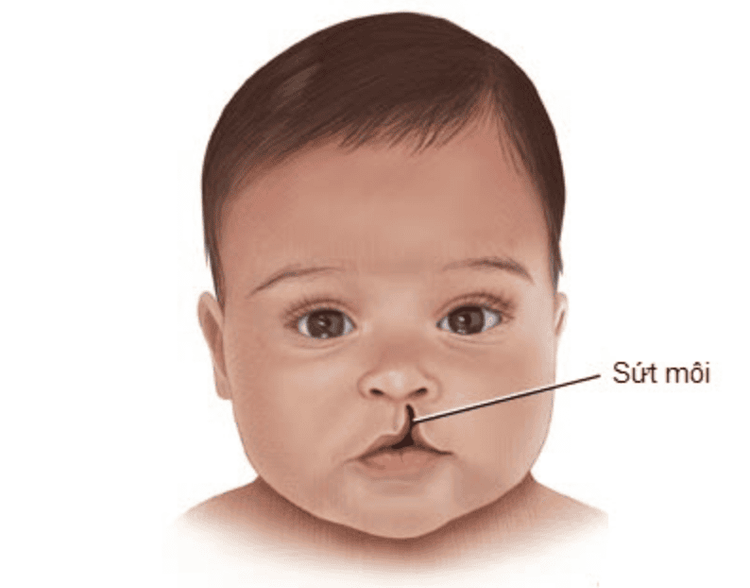This is an automatically translated article.
The article is written by Master, Doctor Nguyen Nhu Thu Truc - Obstetrician and Gynecologist - Department of Obstetrics and Gynecology - Vinmec Nha Trang International General Hospital.1. Can a woman with epilepsy get pregnant?
It is best before becoming pregnant, women with epilepsy need to inform their doctor about their condition. If you are already pregnant, your doctor needs to be informed as soon as possible. Not using antiepileptic drugs can be carefully considered in cases where there have been no seizures for the previous 2-3 years.If there is a risk of recurrent seizures, this decision needs to be made.
The therapist needs to make sure that the patient is being treated with the lowest effective dose, giving the best seizure control in case a person is still having seizures. A doctor's supervision is required when changing any medication.
More antiepileptic drugs are absorbed by the body, and blood levels may decrease during pregnancy, so blood levels should be regularly monitored and the dose may be increased.
2. Are epilepsy drugs dangerous during pregnancy?
We all know that, during pregnancy, pregnant women should avoid taking drugs, including tobacco and alcohol. However, for pregnant women with epilepsy, continued use of antiepileptic drugs during pregnancy is essential. Not using the drug poses more dangers, and the risk of having a seizure is generally greater than the harm from taking antiepileptic drugs.There is a 3% chance that the baby will be born with abnormal birth defects. The risk of malformations would be 7% if taking one antiepileptic drug and this risk would increase to 15% if taking two or more antiepileptic drugs. The danger to the fetus increases with the higher the dose of the drug.

3. Risk to the child when the mother has epilepsy
Birth defects can be seen as cleft lip or cleft palate with mothers who are taking antiepileptic drugs. Deformities of the extremities can also occur, and the heart, face, eyes, and ears can all be affected.Use of antiepileptic drugs also causes neural tube defects, such as spina bifida. The incidence of this risk accounts for 0.2 - 0.5% of the total number of cases. The risk of congenital tube defects is up to 1-2% with Sodium valproate and 1% with Carbamazepine (Tegretol). The lower the dose, the lower the risk. Experts also recommend that supplementing with 5mg of folic acid per day before and during pregnancy will significantly reduce the risk of birth defects. And compared with normal children, these children are also at risk of mental retardation.
The mother is advised to take vitamin K1 daily (20mg orally) in the last month of pregnancy to avoid the risk of bleeding in the baby. This vitamin can be given to babies from birth.
According to several studies in women with epilepsy: Sodium valproate may pose a greater risk to the fetus than important older antiepileptic drugs (cabamaxepine, phenytoin, phenobarbital) ). Acetazolamide use is thought to have serious consequences, but convincing evidence is lacking. Whether newer drugs (eg, vigabatrin, lamotrigine, gabapentine, topiramate, tiagabine, oxcarbazepine, levitiracetam) have a more dangerous effect than older drugs is not well understood.

4. Risk of increased number of seizures during pregnancy
During pregnancy, most women with epilepsy do not experience an increase in the number of seizures, however, about 17-37% of women experience an increased number of seizures related to inappropriate use of antiepileptic drugs (or ineffective because vomiting), insomnia, or pregnancy all lower blood levels of the drug.With adequate sleep and regular medication use, pregnant women with epilepsy can control seizures well, this rate accounts for about 50%.
5. Risk of convulsion at work
The percentage of women with epilepsy who will have a tonic-clonic seizure at work is only 1-2% and more than 1-2% will have one in the next 24 hours. Therefore, while working, mothers need to use anti-epileptic drugs as usual. Attention should be paid to all factors associated with maternal epilepsy: the type of medication being taken and the type of seizure at birth.You should not be too worried because a lot of women have epilepsy but the pregnancy is still safe, the delivery is normal and the baby is born healthy.

6. Postpartum care for mothers with epilepsy
The care of a young child will not be affected much if the seizures are strictly controlled. The reverse can be very dangerous and these dangers depend on the nature of the patient's seizure if the seizure is not well controlled.Changing, feeding, and bathing babies should be done on the floor, which can happen if a seizure is sudden, unpredictable. Do not bathe the baby too deeply if the mother has epilepsy to bathe the child, it is safer to put the child on a mat on the floor. It is very dangerous to carry children up and down stairs. In addition, it is necessary to securely lock the child's stroller so that the child does not run freely.
7. Is it safe to use breast milk with epilepsy?
Babies should be breastfed and mothers with epilepsy are no exception. Normal breastfeeding is recommended because the child was exposed to the drug while he was in the womb and only a small fraction of the drug's ingredients passed from the blood into the mother's milk, even while the mother was taking antiepileptic drugs. In addition, the risks and benefits of breastfeeding should be weighed carefully.The mother should sit on the mat on the floor, leaning against the wall to reduce the risk of dropping the baby during a breastfeeding seizure. In cases where the mother's seizures are aggravated by fatigue or insomnia, bottle-feeding should be done with the help of a husband or loved one.
The baby may fall asleep when the mother uses some drugs such as Phenobarbital. Switching between bottle feeding and breastfeeding is essential in this case.
Please dial HOTLINE for more information or register for an appointment HERE. Download MyVinmec app to make appointments faster and to manage your bookings easily.














